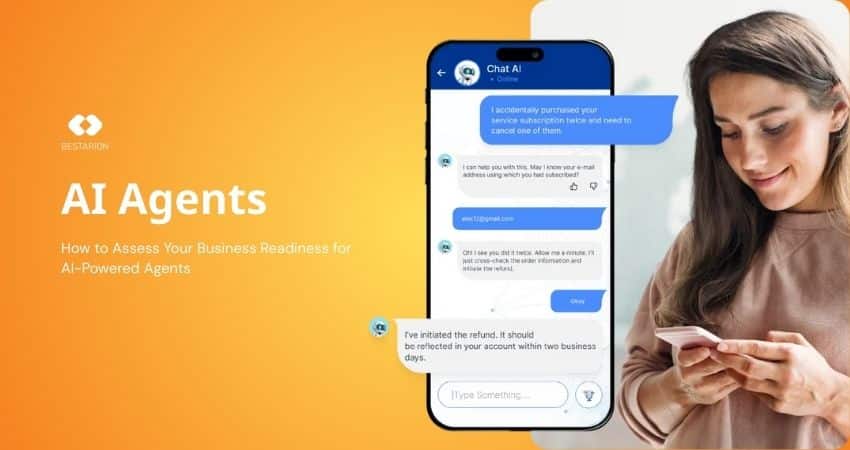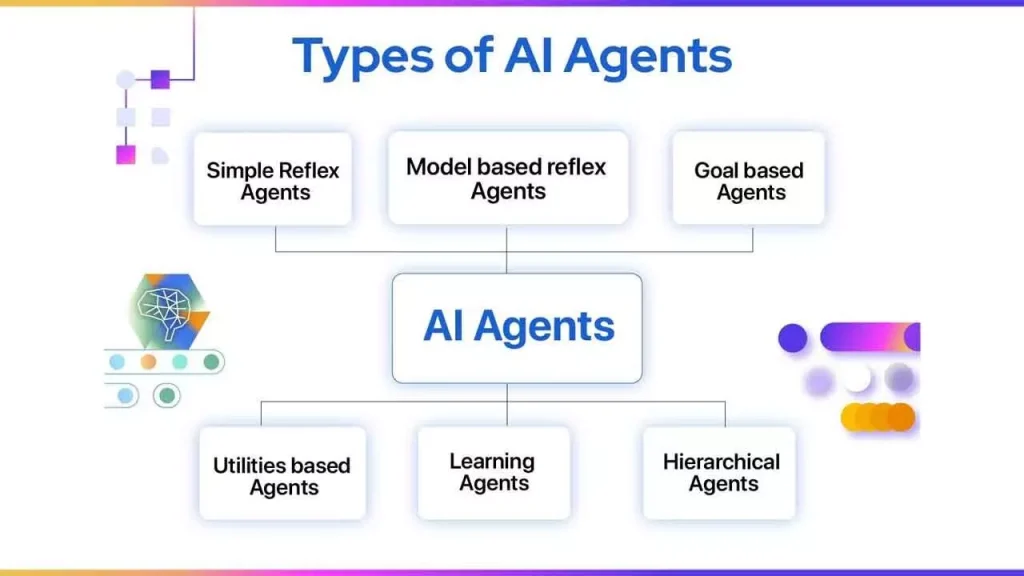Is Your Business Ready for AI Agents? Key Evaluation Criteria

In today’s rapidly evolving technological landscape, artificial intelligence (AI) is no longer a futuristic concept but a present-day reality. Businesses across various sectors are increasingly leveraging AI agents to enhance efficiency, improve customer experiences, and drive innovation. However, the question remains: Is your business ready to deploy AI agents?
This article aims to provide a comprehensive evaluation of the criteria necessary for assessing your organization’s readiness for AI deployment.
Understanding AI Agents
Before delving into the evaluation criteria, it’s essential to define what AI agents are. AI agents are software programs that utilize machine learning, natural language processing (NLP), and other AI technologies to perform tasks autonomously. They can interact with users, analyze data, and make decisions based on predefined algorithms and real-time inputs.
Types of AI Agents

AI agents can be classified into several types based on their functionality, autonomy, and intelligence. Here are the main types of AI agents:
1. Simple Reflex Agents
-
Act based on current perceptions without storing past information.
-
Follow predefined rules (if-then conditions).
-
Example: Basic thermostats, rule-based chatbots.
2. Model-Based Reflex Agents
-
Maintain an internal model of the environment.
-
Use past and current data to make informed decisions.
-
Example: Self-driving cars, smart home assistants.
3. Goal-Based Agents
-
Make decisions to achieve specific goals rather than just reacting.
-
Evaluate multiple actions and their potential outcomes.
-
Example: AI-powered recommendation systems, strategic game bots.
4. Utility-Based Agents
-
Choose actions based on utility functions (how beneficial a result is).
-
Prioritize the best possible outcomes.
-
Example: AI in finance for risk assessment, autonomous drones optimizing routes.
5. Learning Agents
-
Continuously learn and improve through experience.
-
Use machine learning and reinforcement learning techniques.
-
Example: Virtual assistants (Siri, Alexa), fraud detection AI.
6. Multi-Agent Systems (MAS)
-
Multiple AI agents work together in a cooperative or competitive manner.
-
Used in robotics, trading, and logistics.
-
Example: AI-powered stock market trading, swarm robotics.
The Importance of Assessing Readiness
Deploying AI agents can significantly impact your business operations. However, a hasty implementation can lead to wasted resources, unmet expectations, and potential risks. Therefore, assessing your organization’s readiness is crucial. A thorough evaluation can help identify strengths and weaknesses, ensuring a smoother transition to AI integration.
Key Evaluation Criteria for AI Deployment Readiness
1. Business Objectives and AI Alignment
Before implementing AI agents, businesses must define clear objectives:
- Are you looking to automate customer service, enhance marketing efforts, or optimize operations?
- How will AI agents align with your company’s overall goals?
- Do you have key performance indicators (KPIs) to measure AI success?
2. Data Readiness and Quality
AI models rely on data for training and decision-making. Your business must assess:
- Data Availability: Do you have sufficient historical and real-time data?
- Data Quality: Is your data structured, clean, and free from bias?
- Data Security: Are there protocols to protect sensitive information?
3. Technological Infrastructure
AI deployment requires a robust IT infrastructure:
- Computing Power: Do you have sufficient processing capabilities (cloud-based or on-premises)?
- Integration Capability: Can AI integrate with existing software and workflows?
- Scalability: Can your system handle increased AI workload as your business grows?
4. AI Expertise and Talent
Successful AI deployment requires skilled professionals:
- Do you have in-house AI specialists, data scientists, and machine learning engineers?
- If not, are you willing to invest in training or partner with AI vendors?
- Do your employees understand how to collaborate with AI agents?
5. Cost and ROI Considerations
AI deployment is an investment. Businesses must evaluate:
- Initial Costs: Development, implementation, and integration expenses.
- Ongoing Costs: Maintenance, cloud storage, and updates.
- Expected ROI: How much efficiency, revenue growth, or cost savings will AI provide?
6. Regulatory and Ethical Compliance
AI must comply with industry regulations and ethical standards:
- Legal Frameworks: Does your AI align with GDPR, HIPAA, or other regulatory policies?
- Bias and Fairness: Have you ensured that AI decisions are unbiased and ethical?
- Transparency: Can AI decisions be explained and justified?
7. Risk Assessment and Contingency Planning
AI systems may fail or produce unexpected results. Businesses should:
- Identify potential AI risks (e.g., bias, security breaches, system failures).
- Develop a fallback plan if AI agents malfunction.
- Implement monitoring mechanisms to detect and correct errors.
Steps to Achieve AI Readiness
- Conduct an AI Readiness Audit – Assess your current capabilities, data infrastructure, and talent.
- Invest in Training – Equip employees with AI literacy and technical skills.
- Enhance Data Management – Improve data collection, processing, and security.
- Start with a Pilot Program – Test AI agents in a controlled environment before full-scale deployment.
- Monitor and Optimize – Continuously track AI performance and refine strategies.
Conclusion
Deploying AI agents can transform your business operations, but it requires careful consideration and preparation. By evaluating your readiness based on the criteria outlined above, you can make informed decisions that align with your organizational goals. Remember, successful AI integration is not just about technology; it’s about people, processes, and a commitment to continuous improvement.
As you embark on your AI journey, keep in mind that readiness is an ongoing process. Stay adaptable and open to learning as you navigate the complexities of AI deployment. With the right preparation, your business can harness the power of AI agents to drive innovation and achieve lasting success.
